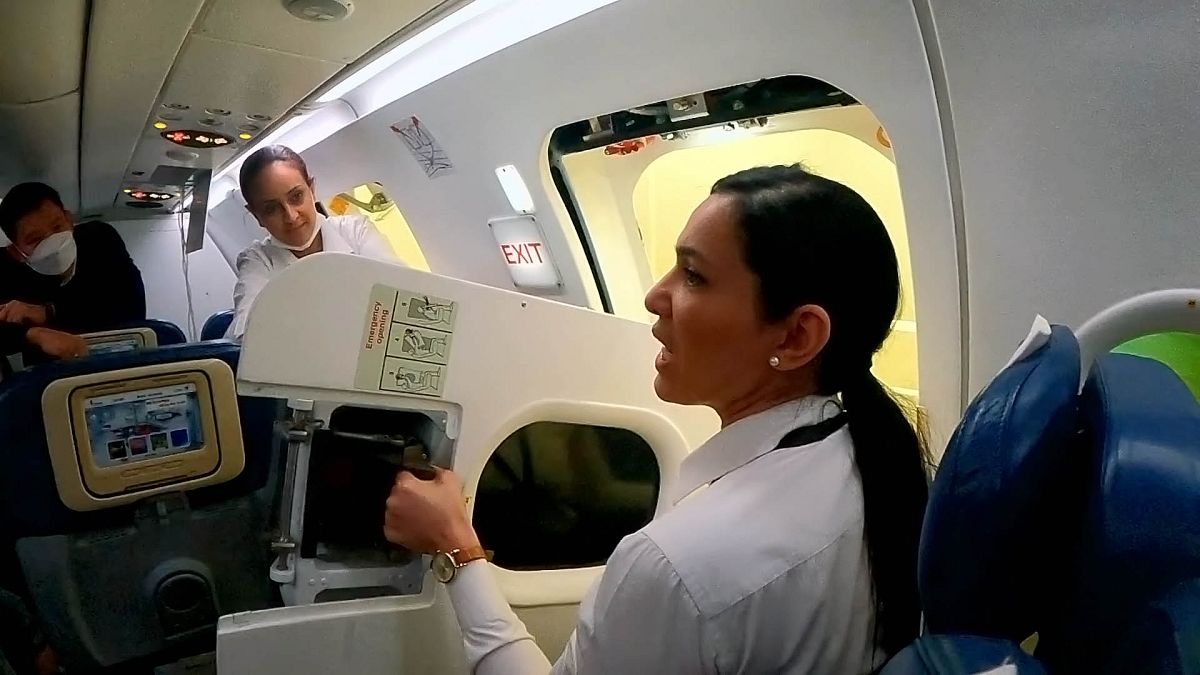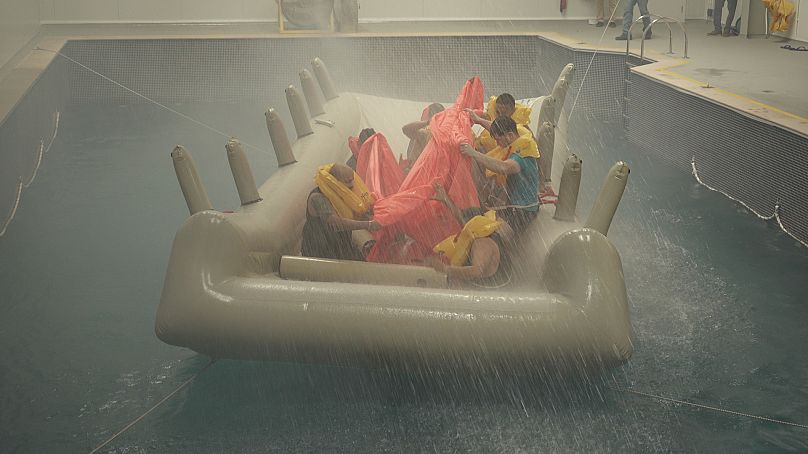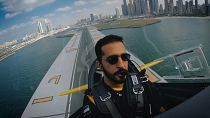Are you a nervous flier? If so, there’s an educational organisation in Dubai in the United Arab Emirates that might be able to help you. Dynamic Advanced Training specialises in giving people the skills to survive a plane crash. To imitate reality as closely as possible, lessons take place in an aircraft simulator and survival training rooms replicating real-life environments.
“The common misconception about plane crashes, as Hollywood depicts, is that everybody dies,” says Dynamic Advanced Training’s Safety Emergency Trainer Hasan Iqbam. “But that’s not always the case. Crashes are survivable.”
According to a study by the European Transport Safety Council, plane crashes technically have a 90% survivability rate, and this figure is increasing, largely thanks to modern aircraft design, which features enough exits to allow for a full passenger evacuation in around 90 seconds.
Recent proof of plane crash survival came in October last year when a Boston-bound private plane taking off at Houston Executive Airport struck a fence and burst in flames. All 21 people onboard survived. In 2018, all 103 passengers survived a flaming plane crash in Mexico when strong winds brought down Aeromexico flight 2431.
Appreciating that it’s possible to survive a plane crash is the first step to increasing your chances. Combating fatalist attitudes and apathy over your odds of survival will leave you more inclined to follow safety guidelines that might just save your life.
Here are five tips for survival:
1. Choose the safest seat
Airlines uphold that all seats are equally safe, but some statistics suggest seats at the back of a plane are marginally safer. Time magazine analysed airplane accident data between 1980 and 2015 and found that passengers seated in the back of the plane had a 32% fatality rate, compared to 38% and 39% seated in the front and middle respectively.
Arguably, whether seated at the front, middle or back, if the speed at which a passenger exits a crashed plane dictates their chance of survival, the closer they are to an exit the better their chances are. University of Greenwich professor Ed Galea analysed seating charts from more than 100 plane crashes and found that sitting within five rows of an exit increased passengers’ survival rates.
2. Dress for survival
Tight-fitting attire is preferable to loose-fitting fabrics that could snag on fixtures and fittings when trying to exit a crashed plane. Full-length clothing could potentially protect the skin from fire, which is typical in a plane crash. Durable jeans or sportswear such as leggings made from less-flammable fabric such as cotton are ideal. Leave stilettoes in your luggage. As safety cards point out, sharp heals can damage inflatable slides. Trainers are the safest option.
3. Pay attention to the safety briefing
You may have heard a hundred safety briefings before, but it’s always worth ensuring you and everyone in your party pays attention to every safety briefing. Aircrafts and instructions vary. Before you even consider your inflight movie choice, you should memorise where your nearest exit is, as well as how to fit a face mask and put on a life jacket.
4. Prepare for impact
Reduce your risk of injury at the point of impact in a plane crash by not only memorising but practicing the bracing instructions given in safety guides. Generally, it’s recommended that you protect your head from secondary impact by covering it with your arms and leaning against the seat in front. Objects flying through the cabin can also cause secondary impact, which is why passengers are asked to put their bags under the seat in front of them. Filling this legroom with a small carry-on can also provide a barrier to the space and reduce the risk of trapping or breaking feet and legs. Finally, keep your seatbelt fastened as this will prevent you from being thrown around the aircraft in the event of a crash.
5. Brush up on your survival skills
Basic first aid training is useful in any disaster situation. The experience offered at Dubai’s Dynamic Advanced Training covers a broader set of survival skills specific to plane crashes, from building a shelter at the crash site to aiding in your own rescue efforts. Primarily aimed at pilots and cabin crew, with a focus on private and business aviation, courses are open to all. Other than basic literacy and numeracy skills, there are no prerequisites to attend.
Practical training scenarios are designed to show how to react correctly to an aircraft ditching emergency and survive in remote locations spanning sea, polar, desert and jungle landscapes. A range of topics are covered including emergency flotation, raft management, survival at sea, search and rescue, how to use an aircraft survival kit, immediate post-crash concerns, and how to signal distress once safely in the water or on ground.
With the right skillset, the next time nervous passengers fly, instead of thinking about all the ways they can die, they can instead think about all the ways they can survive.
For more information, please visit Dynamic-advanced.com. For more on Dubai, please visit the Destination Dubai hub on Euronews.com







